BMW X3 VS Kia Niro – Specs, Efficiency & Price Comparison
Which model is the better choice – the BMW X3 or the Kia Niro? We compare performance (510 HP vs 171 HP), boot capacity (570 L vs 451 L), efficiency (0.90 L vs 0.80 L), and of course, the price (47900 £ vs 28100 £).
Find out now which car fits your needs better!
The BMW X3 (SUV) is powered by a Diesel MHEV, Petrol MHEV, Plugin Hybrid or Petrol engine and comes with a Automatic transmission. In comparison, the Kia Niro (SUV) features a Full Hybrid or Plugin Hybrid engine and a Automatic gearbox.
When it comes to boot capacity, the BMW X3 offers 570 L, while the Kia Niro provides 451 L – depending on what matters most to you. If you’re looking for more power, you’ll need to decide whether the 510 HP of the BMW X3 or the 171 HP of the Kia Niro suits your needs better.
There are also differences in efficiency: 0.90 L vs 0.80 L. In terms of price, the BMW X3 starts at 47900 £, while the Kia Niro is available from 28100 £.
Compare all the key specs now and find out which model fits your lifestyle best!
BMW X3
The BMW X3 stands out in the competitive SUV market with its refined blend of performance and luxury. Its interior boasts high-quality materials and a design focused on driver comfort and convenience. With a robust engine lineup, the vehicle offers a balanced driving experience that caters to both urban settings and off-road adventures.
details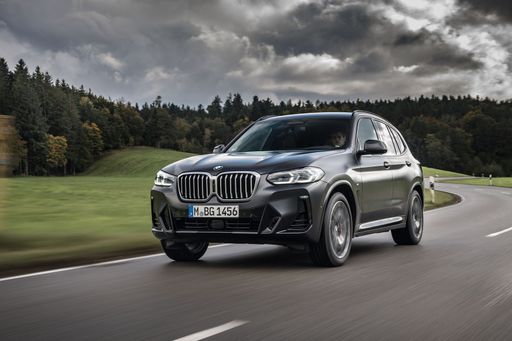 @ press.bmwgroup.com
@ press.bmwgroup.com
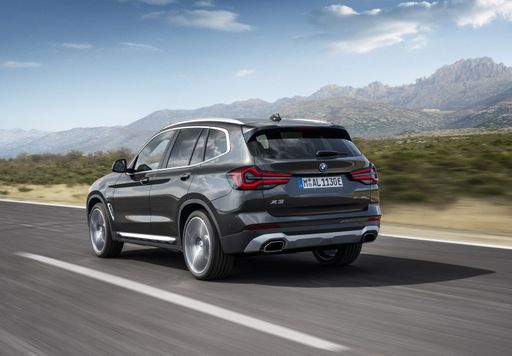 @ press.bmwgroup.com
@ press.bmwgroup.com
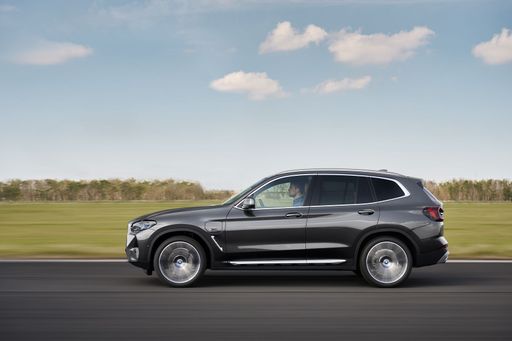 @ press.bmwgroup.com
@ press.bmwgroup.com
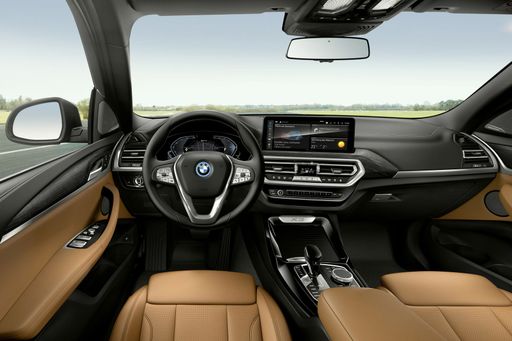 @ press.bmwgroup.com
@ press.bmwgroup.com
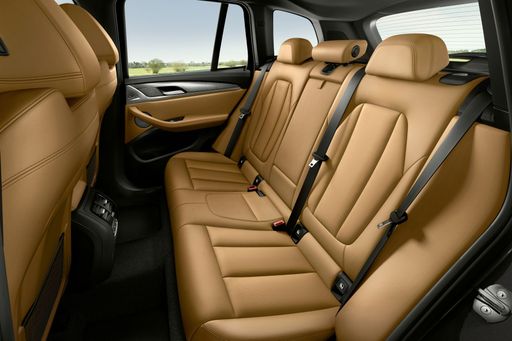 @ press.bmwgroup.com
@ press.bmwgroup.com
Kia Niro
The Kia Niro presents itself as a versatile and eco-friendly SUV, blending a stylish design with advanced hybrid technology. Its spacious interior offers comfort and practicality, making it ideal for both city driving and longer journeys. With a focus on efficiency and sustainability, the Niro is a compelling choice for environmentally conscious drivers.
details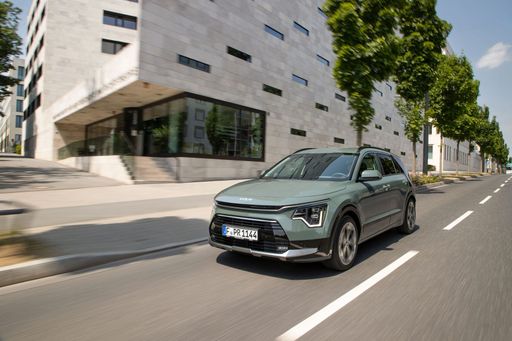 @ press.kia.com
@ press.kia.com
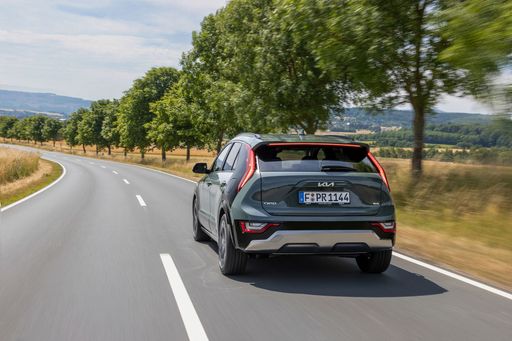 @ press.kia.com
@ press.kia.com
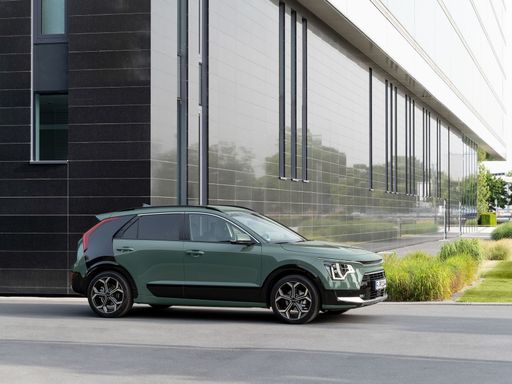 @ press.kia.com
@ press.kia.com
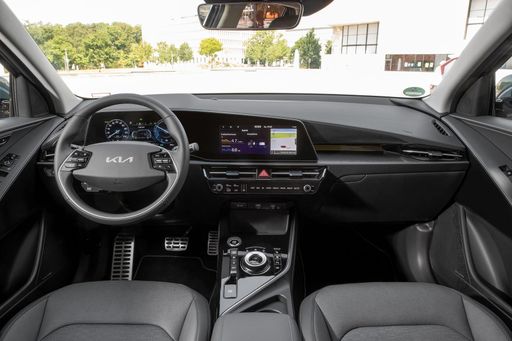 @ press.kia.com
@ press.kia.com
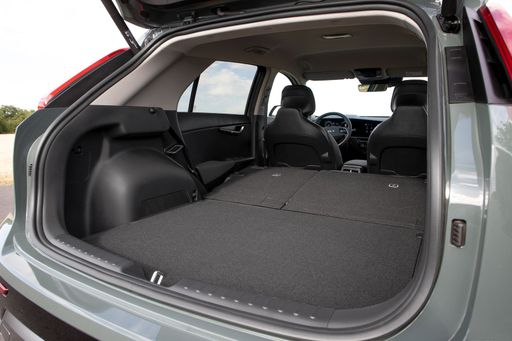 @ press.kia.com
@ press.kia.com

|

|
|
|
|
Costs and Consumption |
|
|---|---|
|
Price
47900 - 90300 £
|
Price
28100 - 37800 £
|
|
Consumption L/100km
0.9 - 10.8 L
|
Consumption L/100km
0.8 - 4.4 L
|
|
Consumption kWh/100km
-
|
Consumption kWh/100km
-
|
|
Electric Range
44 - 90 km
|
Electric Range
59 - 65 km
|
|
Battery Capacity
11.2 - 19.7 kWh
|
Battery Capacity
1.3 - 11.1 kWh
|
|
co2
21 - 246 g/km
|
co2
19 - 100 g/km
|
|
Fuel tank capacity
50 - 68 L
|
Fuel tank capacity
37 - 42 L
|
Dimensions and Body |
|
|---|---|
|
Body Type
SUV
|
Body Type
SUV
|
|
Seats
5
|
Seats
5
|
|
Doors
5
|
Doors
5
|
|
Curb weight
1875 - 2140 kg
|
Curb weight
1474 - 1594 kg
|
|
Trunk capacity
450 - 570 L
|
Trunk capacity
348 - 451 L
|
|
Length
4708 - 4755 mm
|
Length
4420 mm
|
|
Width
1891 - 1920 mm
|
Width
1825 mm
|
|
Height
1660 - 1676 mm
|
Height
1545 mm
|
|
Payload
415 - 585 kg
|
Payload
466 kg
|
Engine and Performance |
|
|---|---|
|
Engine Type
Diesel MHEV, Petrol MHEV, Plugin Hybrid, Petrol
|
Engine Type
Full Hybrid, Plugin Hybrid
|
|
Transmission
Automatic
|
Transmission
Automatic
|
|
Transmission Detail
Automatic Gearbox
|
Transmission Detail
Dual-Clutch Automatic
|
|
Drive Type
All-Wheel Drive
|
Drive Type
Front-Wheel Drive
|
|
Power HP
184 - 510 HP
|
Power HP
129 - 171 HP
|
|
Acceleration 0-100km/h
3.8 - 8.4 s
|
Acceleration 0-100km/h
10.4 - 11.3 s
|
|
Max Speed
210 - 250 km/h
|
Max Speed
160 - 161 km/h
|
|
Torque
300 - 700 Nm
|
Torque
265 Nm
|
|
Number of Cylinders
4 - 6
|
Number of Cylinders
4
|
|
Power kW
135 - 375 kW
|
Power kW
95 - 126 kW
|
|
Engine capacity
1995 - 2998 cm3
|
Engine capacity
1580 cm3
|
General |
|
|---|---|
|
Model Year
2023 - 2025
|
Model Year
2024
|
|
CO2 Efficiency Class
F, B, G, E
|
CO2 Efficiency Class
C, B
|
|
Brand
BMW
|
Brand
Kia
|
BMW X3
Introducing the BMW X3: A Blend of Power and Innovation
The BMW X3 is a testament to the brand’s commitment to merging luxury with cutting-edge technology. This SUV not only offers impressive on-road performance but also showcases innovative features that cater to both petrolheads and eco-conscious drivers.
Powerful Performance Across the Range
The BMW X3 comes with various powertrain options to suit diverse driving preferences, ranging from efficient plug-in hybrids to powerful petrol and diesel mild-hybrids. With performance outputs ranging from 184 PS to an impressive 510 PS, the X3 proves its versatility on the road. Paired with BMW's renowned automatic transmission, each model offers a smooth and responsive driving experience complemented by the brand's xDrive all-wheel-drive system.
Leading-Edge Hybrid Technology
Among the X3's portfolio, the plug-in hybrid variants stand out with their optimal balance between efficiency and performance. These models boast electric-only ranges up to 90 km, ideal for urban driving with minimal emissions. Meanwhile, the mild-hybrid systems enhance efficiency by recuperating energy during deceleration and supporting the combustion engine, optimizing fuel consumption ranging from 0.9 L/100km to 10.8 L/100km depending on the model.
Contemporary Design with Practical Features
From a design perspective, the BMW X3 maintains its iconic SUV silhouette, characterized by robust proportions and sleek, aerodynamic lines. With dimensions of up to 4755 mm in length and a luggage capacity of up to 570 litres, it caters to both style enthusiasts and practical users. Additionally, the interior showcases BMW’s commitment to sophistication, featuring high-quality materials, state-of-the-art infotainment systems, and comprehensive driver-assistance technologies.
Efficiency Meets Performance
The X3's impressive performance figures are complemented by its responsible approach to CO2 emissions, aligning with EU efficiency standards. Enhanced by its comprehensive suite of driver aids and intelligent safety features, the X3 ensures both the thrill of driving and peace of mind.
Conclusion: The Ultimate Driving Companion
In essence, the BMW X3 represents the perfect intersection of dynamic performance, fuel efficiency, and modern-day technology. With options catering to diverse needs and preferences, it remains a leading choice for drivers seeking versatility, innovation, and luxury.
Kia Niro
The Evolution of the Kia Niro: A Glimpse into the Future
The Kia Niro has become a symbol of innovation in the hybrid and electric vehicle market. This compact SUV offers a unique blend of efficiency, performance, and style, appealing to a wide range of drivers. Kia Niro's latest model lineup showcases different powertrains, offering consumers choices between full hybrid, plug-in hybrid, and full electric options. These advancements represent Kia's commitment to sustainable mobility and cutting-edge technology.
Performance and Efficiency: Behind the Wheel of the Kia Niro
The performance range of the Kia Niro is impressive, with power outputs ranging from 129 PS in the full hybrid variant to 204 PS in the completely electric version. This ensures that there’s a Niro to meet diverse driving needs and preferences. The acceleration from 0-100 km/h spans between 7.8 to 11.3 seconds across different models, showcasing a balance between efficiency and responsiveness.
Fuel and energy consumption figures are equally commendable. With the hybrid models consuming between 0.8 to 4.4 litres per 100 km and the electric model utilising 16.2 kWh per 100 km, the Kia Niro caters to eco-conscious consumers. Notably, the plug-in hybrid version offers a remarkable electric range of up to 65 km, while the fully electric model boasts an impressive range of 460 km on a single charge.
Innovative Features for Today’s Driver
Kia has equipped the Niro with state-of-the-art features aimed at enhancing the driving experience. The latest models come with advanced driver assistance systems, ensuring safety and convenience. These include lane-keeping assist, adaptive cruise control, and collision avoidance technologies that set a high standard in the compact SUV class.
The Niro also benefits from a sleek infotainment system featuring a high-resolution display, offering seamless connectivity with features like Apple CarPlay and Android Auto. This keeps drivers connected while minimising distractions, creating an optimal driving environment.
Design and Practicality: A Perfect Balance
The Kia Niro stands out with its aerodynamic design, which is both aesthetically pleasing and practical. The dimensions of the vehicle – 4420 mm in length, 1825 mm in width, and a height ranging from 1545 to 1570 mm – provide ample space for passengers and cargo. The boot capacity ranges from 348 to 475 litres, catering to those who require versatility for their lifestyle or family needs.
The Niro’s cabin is crafted with a focus on comfort and usability, incorporating high-quality materials and an intelligent layout that complements its sophisticated exterior.
Sustainability and Cost Efficiency
The Kia Niro reflects Kia's dedication to improving environmental performance. The CO2 emissions spectrum, ranging from 0 to 100 g/km depending on the powertrain, highlights the vehicle's eco-friendly credentials. For those particularly conscious of their environmental footprint, the electric and plug-in hybrid models offer substantial reductions in emissions.
In terms of cost, the Niro offers competitive pricing from €32,790 to €47,590, and operational costs ranging from €928 to €1,101 per month. The Niro also maintains a reasonable cost per kilometre, between 37.1 to 44.1 cents, making it an economically sound choice in the long run.
Conclusion: The Future is Bright for Kia Niro
The Kia Niro stands as a testament to Kia’s innovative spirit and commitment to providing eco-friendly and technologically advanced vehicles. Its blend of performance, efficiency, and innovative features make it a compelling option for those seeking a future-focused SUV. As Kia continues to evolve, the Niro remains a leading example of how the brand is shaping the future of driving.
The prices and data displayed are estimates based on German list prices and may vary by country. This information is not legally binding.
